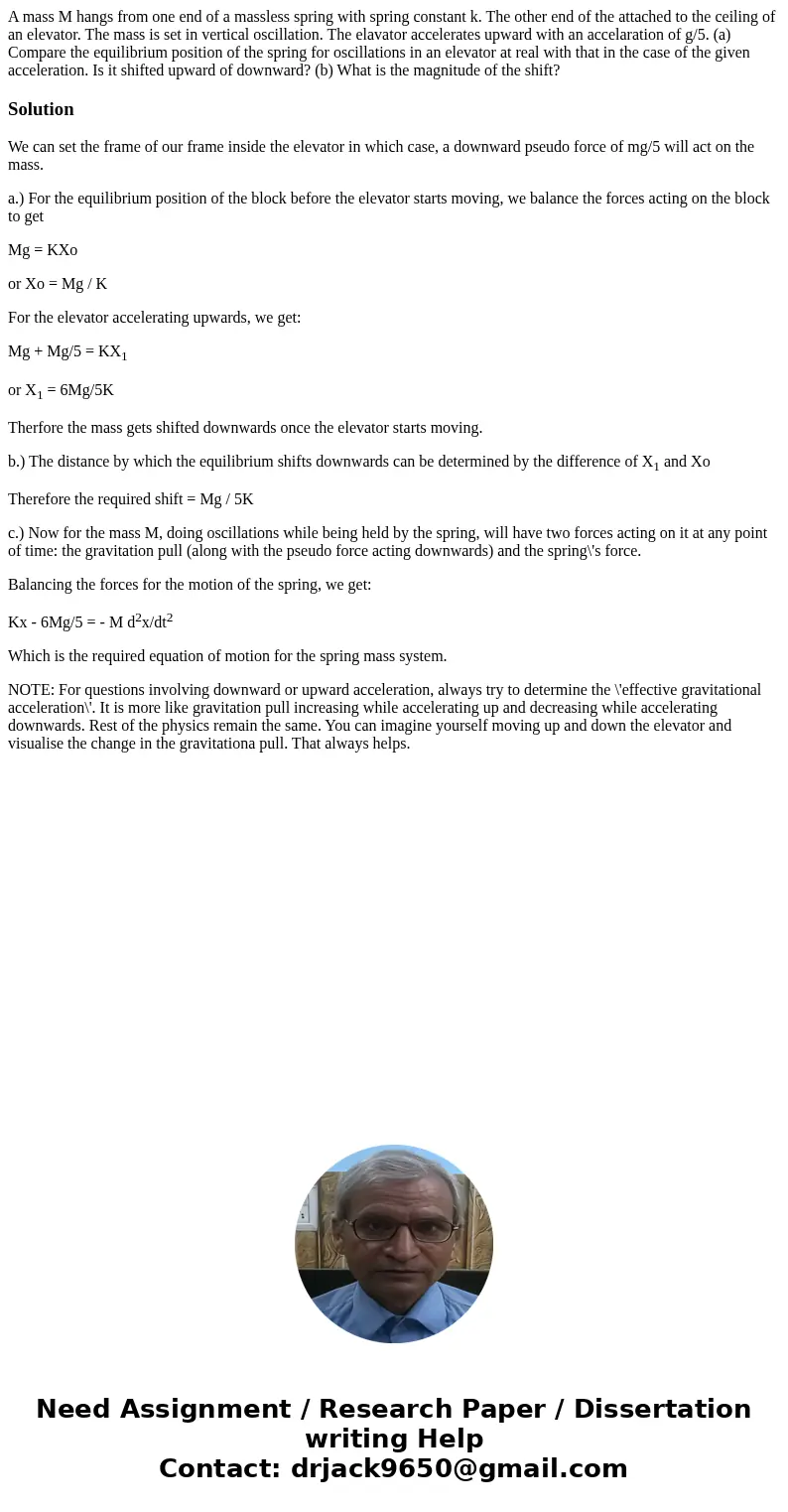A mass M hangs from one end of a massless spring with spring
Solution
We can set the frame of our frame inside the elevator in which case, a downward pseudo force of mg/5 will act on the mass.
a.) For the equilibrium position of the block before the elevator starts moving, we balance the forces acting on the block to get
Mg = KXo
or Xo = Mg / K
For the elevator accelerating upwards, we get:
Mg + Mg/5 = KX1
or X1 = 6Mg/5K
Therfore the mass gets shifted downwards once the elevator starts moving.
b.) The distance by which the equilibrium shifts downwards can be determined by the difference of X1 and Xo
Therefore the required shift = Mg / 5K
c.) Now for the mass M, doing oscillations while being held by the spring, will have two forces acting on it at any point of time: the gravitation pull (along with the pseudo force acting downwards) and the spring\'s force.
Balancing the forces for the motion of the spring, we get:
Kx - 6Mg/5 = - M d2x/dt2
Which is the required equation of motion for the spring mass system.
NOTE: For questions involving downward or upward acceleration, always try to determine the \'effective gravitational acceleration\'. It is more like gravitation pull increasing while accelerating up and decreasing while accelerating downwards. Rest of the physics remain the same. You can imagine yourself moving up and down the elevator and visualise the change in the gravitationa pull. That always helps.

 Homework Sourse
Homework Sourse